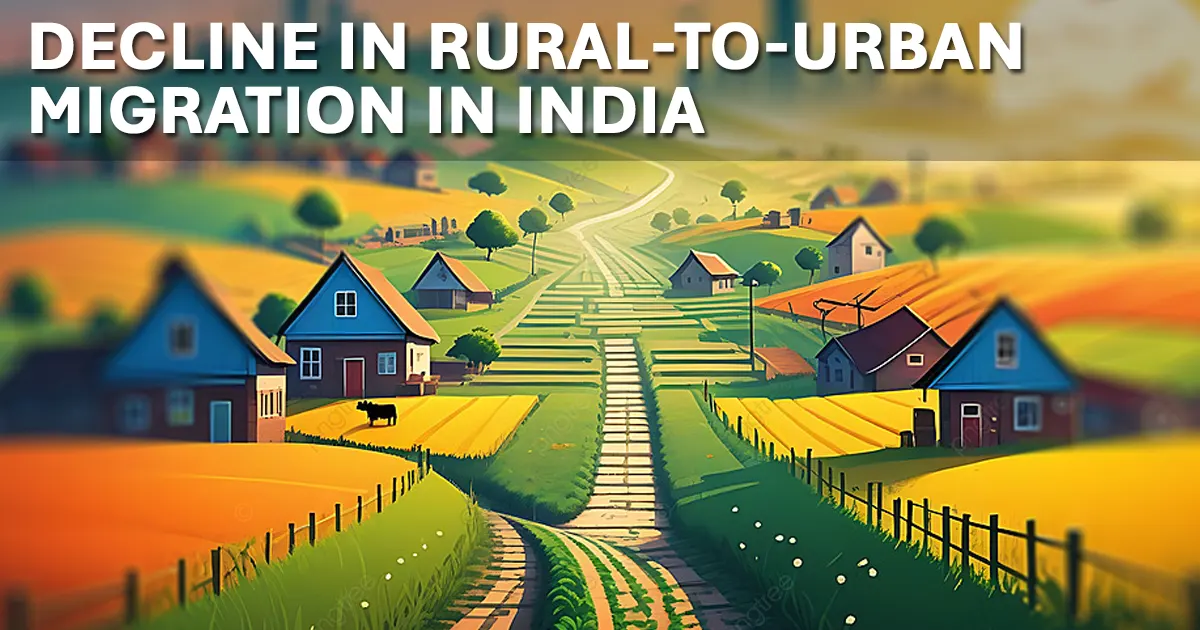GS1- SOCIETY

Recent findings from the report ‘400 Million Dreams!’ by the Economic Advisory Council to the Prime Minister (EAC-PM) reveal a significant decline in rural-to-urban migration in India, with 5.4 million fewer migrants in 2023 compared to 2011—a drop of 11.8%.
Key Trends in Migration
- Migration Rate Decline: From 37.6% in 2011 to 28.9% in 2023.
- Economic Migration: Reduced to 6.7% of the workforce in 2023, down from 9.3% in 2011.
- Workforce Growth: While the workforce grew at 1.8% CAGR, migration contracted at -1%.
Factors Influencing the Decline
- Improved Rural Opportunities: Enhanced government services, infrastructure, and connectivity in rural areas.
- Economic Slowdown: Increased dependence on agriculture, disguised unemployment, and flat rural wages.
- Automation and Urban Saturation: Reduced demand for migrant labor in urban areas.
Transport and Remittance Data
- Transport Trends:
- 6.7% decline in migration during peak months (railway data).
- 16% drop in bus travel since FY11.
- Decline in non-suburban railway passengers.
- Urban-Rural Remittance Patterns:
- Higher Savings-to-Current Account (SA/CA) ratios in rural areas (e.g., Bihar at 10.14) reflect outbound migration origins.
- Lower SA/CA ratios in cities like Mumbai and Delhi indicate greater economic activity.
Challenges to Rural Infrastructure Claims
- Rural Electrification: Minimal increases since FY01 challenge claims of its role in reducing migration.
- Housing Construction: Limited progress under the PM Awaas Yojna-Gramin suggests infrastructure improvements have not significantly influenced migration trends.
Implications for Policy
- Ruralisation Trend: Migration decline highlights a shift towards increased rural dependence, risking oversupply of rural labor and stagnation.
- Policy Recommendations:
- Enhance rural income through fiscal measures and employment-generation schemes.
- Stimulate urban growth to revive economic migration.
- Address disguised unemployment and flat wages in rural areas.
This analysis underscores the need for balanced rural and urban development to sustain economic growth and labor mobility in India.




